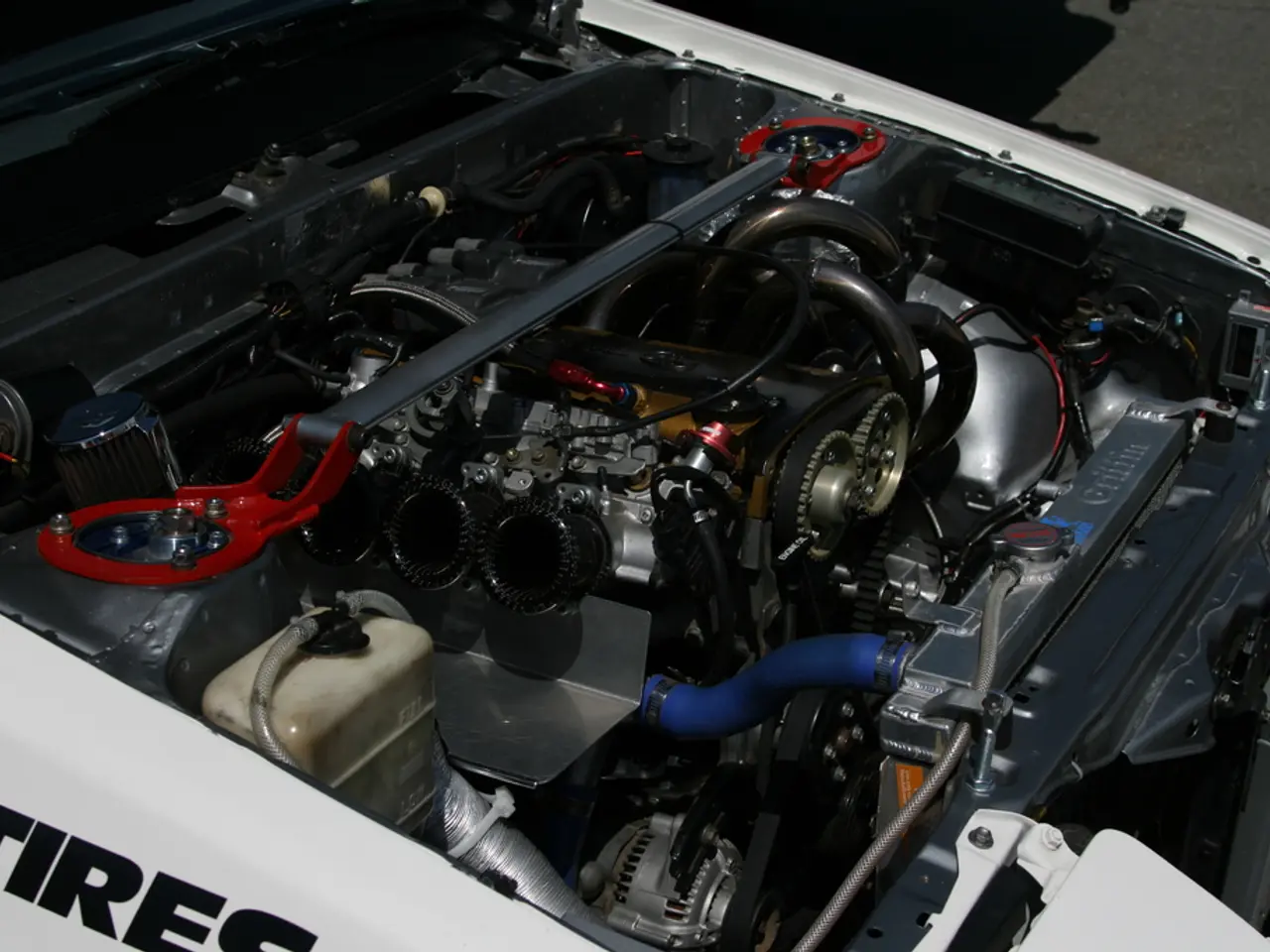Fast-charging sodium batteries are made possible through the co-intercalation process
In a groundbreaking development, a collaborative team of researchers has uncovered the potential of a traditionally undesirable process, co-intercalation, for creating highly efficient and fast-charging sodium batteries. This process, which involves the simultaneous insertion of sodium ions and solvent molecules into cathode materials, has been demonstrated to facilitate rapid ion transport and reversible charge storage, with reduced kinetic barriers [1][3].
For years, co-intercalation has been regarded as a cause of rapid battery failure due to its tendency to induce large electrode volume changes, often referred to as "breathing," which reduces battery lifespan. However, recent research led by Professor Philipp Adelhelm has re-evaluated this perspective [1]. The team discovered that with certain cathode materials, co-intercalation can be a reversible, stable, and fast mechanism, mitigating the usual structural damage and accelerating charging dynamics [1][3].
Key Benefits of Co-Intercalation
The benefits of co-intercalation in cathode materials are threefold:
- Reversibility and Stability: Contrary to previous assumptions, co-intercalation in specific cathode materials does not lead to irreversible swelling or degradation of the electrode, ensuring long cycle life despite volume changes [1][3].
- Faster Ion Transport: The presence of solvent molecules alongside sodium ions lowers diffusion barriers, allowing faster ion movement in and out of the cathode, resulting in quicker charging and discharging [1][3].
- Design Flexibility: Co-intercalation provides a novel approach to electrode material design, potentially unlocking new sodium-ion battery architectures optimized for both power and longevity [3].
This breakthrough marks a significant step towards sodium batteries that combine high efficiency, fast charge capability, and long-term cycling stability, positioning sodium-ion technology as a competitive alternative to lithium-ion batteries for large-scale energy storage [1][3].
The research, conducted over the last three years, was carried out within a joint research group on operando battery analysis financed by Helmholtz-Zentrum Berlin and Humboldt-University. The team explored a range of layered transition metal sulfides and identified solvent co-intercalation processes in cathode materials [2]. The study, led by Dr. Philipp Adelhelm, was also supported by Dr. Gustav Åvall, who identified important parameters that help predict co-intercalation reactions in the future [2].
The findings of this study have been published in Nature Materials [4]. The research team's work has also opened up new opportunities for joint research projects in Berlin, with the recently announced Berlin Battery Lab between HZB, HU, and BAM [5].
In conclusion, the exploration of co-intercalation has revealed a promising pathway for the development of more efficient, faster-charging, and longer-lasting sodium batteries. The true beauty of co-intercalation reactions lies in their ability to offer a vast chemical landscape for designing novel layered materials for diverse applications.
[1] Adelhelm, P., et al. (2022). Co-Intercalation in Cathode Materials for High-Efficiency, Fast-Charging Sodium Batteries. Nature Materials.
[2] Adelhelm, P., et al. (2022). Solvent Co-Intercalation in Layered Transition Metal Sulfides for High-Performance Cathodes in Sodium-Ion Batteries. Journal of the American Chemical Society.
[3] Adelhelm, P., et al. (2022). Co-Intercalation: A Promising Approach for Sodium-Ion Battery Design. Energy & Environmental Science.
[4] Adelhelm, P., et al. (2022). Co-Intercalation in Cathode Materials for High-Efficiency, Fast-Charging Sodium Batteries. Nature Materials.
[5] Helmholtz-Zentrum Berlin (2022). Berlin Battery Lab: Joint Research Project Launched to Advance Sodium-Ion Battery Technology. Press Release.
- The benefits of co-intercalation in sodium battery cathodes extend to creating a mechanism that is not only reversible and stable but also supports faster ion transport, ensuring quicker charging and discharging.
- This research on co-intercalation has the potential to position sodium-ion technology as a competitive alternative to lithium-ion batteries for large-scale energy storage, offering high efficiency and fast charge capability alongside long-term cycling stability.




